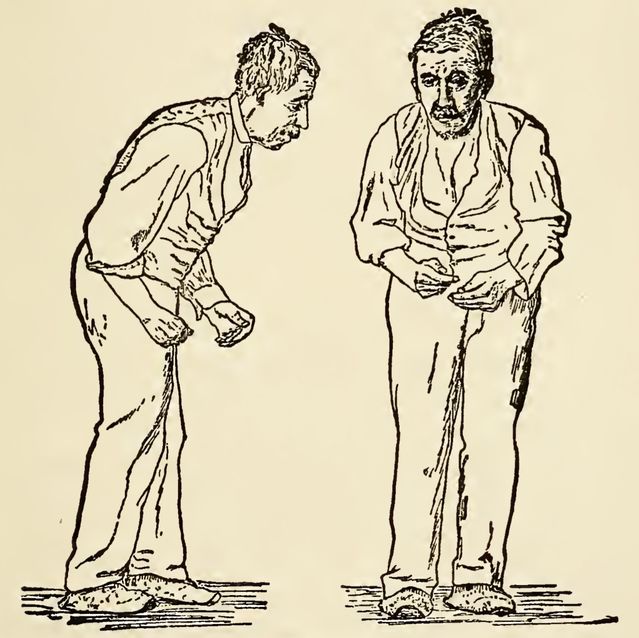Cognition
Does Impaired Movement Impair Thinking About Movement?
Challenging embodied cognition—a popular mind body hypothesis.
Posted October 17, 2019 Reviewed by Matt Huston

This post was co-authored by Stacey Humphries, Ph.D.
Imagine an apple sitting on the table in front of you. It’s rich, blood red, and its shiny skin gleams in the light. Consider how it would feel to pick it up—smooth and cool in your hand. Visualize biting into it; the satisfying feeling on your teeth, the loud crunch, its juiciness, and the perfect blend of sweet and tart.
You probably found it easy to bring to mind memories of your visual, auditory, tactile, and gustatory experiences with apples. Some cognitive scientists would say that you simulated these sensory experiences, and the sensory systems in your brain were active as you did so. Experiments have shown that when people imagine visual information such as color, form, or motion, the same areas of our brains are activated as when we actually perceive color, form, and motion in the world. Similarly, imagining reaching to grasp and pick up the apple may have activated your motor cortex in a similar way as if you had really moved your hand. But to what extent do people draw on this embodied perceptual knowledge when they encounter or use the word “apple?”
This question reflects one of the most controversial debates in cognitive science: How is meaning represented in the brain? At stake is the issue of whether the format of thought is amodal or modality-specific. That is, are thoughts about actions, objects, and emotions represented in the same neural format as actual experiences of those same actions, objects, and emotions? Those who answer "yes" to this question subscribe to the embodied cognition hypothesis. By contrast, other scientists argue that while thoughts can certainly be about sensory experiences, it does not automatically follow that the thoughts themselves are in the same format as actual sensory experiences. This camp believes that thoughts are more abstract.
The embodied cognition hypothesis has been influential in explaining the results of experiments showing that modality-specific regions of the brain are activated by words referring to those modalities. Words like “red” activate visual areas that process color, words referring to objects with strong acoustic features such as “telephone” activate sound processing areas, and so on. But how can the embodied cognition hypothesis account for how we understand more abstract words like “freedom,” which don’t have obvious concrete sensory features?
Even concrete verbs like “grasp” can mean something different when talking about grasping an apple versus grasping a new idea. Metaphorical uses of nouns, verbs, adjectives, and prepositions abound in everyday language and go largely unnoticed. We feel warmly towards people we like, a difficult week at work makes us feel in over our heads, and a negative interaction leaves a bad taste in our mouths. What’s going on in our brains when we use words in this figurative way? Does kicking the habit cause the same neurons to fire in your motor cortex as kicking the ball?
We tackled this question by comparing a group of people with Parkinson’s disease—a condition that progressively impairs the motor system in the brain—to a group of healthy older adults without the disease. We tested how well the participants understood metaphors using action words figuratively (e.g., “The promised money scurried out of sight”) and metaphors using sound words figuratively (e.g., “The inn groaned at the new guests”). We reasoned that if metaphorical uses of words are represented in the same sensory and motor brain systems as they are when used literally, people with Parkinson’s disease should perform more poorly on the action metaphors relative to the sound metaphors, while the control group should show no difference between the two types of metaphor.
Participants completed a multiple-choice test where they selected the correct meaning of the sentence from four options. We measured how many metaphors they understood correctly, and also how quickly they responded. We also included a control condition comprised of literal sentences.
Overall, both groups of participants found the metaphors harder to understand than literal sentences. But, we found that the Parkinson’s group had no more difficulty understanding the action metaphors than they did the sound metaphors. In fact, the Parkinson’s group had no problems understanding the literal action sentences either. What does this finding mean for the embodied cognition hypothesis?
If our brain represents the meanings of words and concepts in the same format as our sensory and motor experiences of those concepts, one would expect that people with Parkinson’s disease would have particular trouble understanding action concepts, given the devastating effects the disease has had on their motor systems. The fact that this was not the case in our study is surprising, and counters previous evidence reported in favor of embodied cognition. It is not always clear why different experiments observe results that appear to be at odds with each other.
Our study was particularly rigorous in its design and benefited from being conducted as a Registered Report. In this new way of conducting experiments, researchers prepare a proposal for an experiment, including the hypothesis being tested, the predictions being made, and the exact experimental methods they plan to use. This proposal is then peer-reviewed before the researchers start collecting any data. The benefits of this approach are two-fold: First, any potential shortcomings of the design which would weaken the experiment can be identified by the reviewers before the researchers start running the experiment. Second, by registering the exact methods they plan to use in advance (and sticking to that plan), the researchers prevent the possibility of “fishing” through the data to find a result that isn’t really there.
The embodied cognition hypothesis remains controversial, but the results from our experiment suggest that people with impaired motor systems have no trouble understanding action concepts—literally or figuratively.




